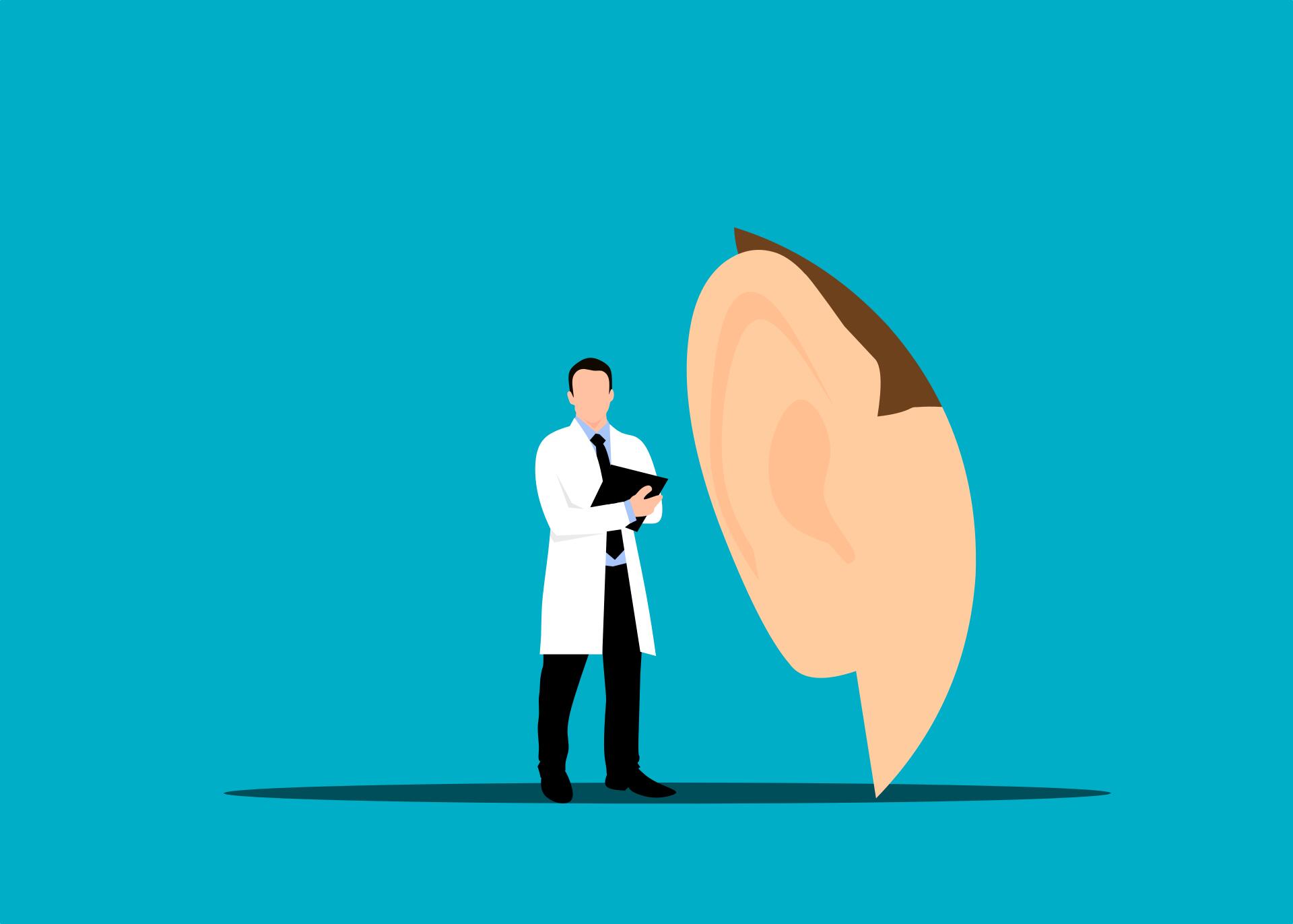
Hunger Headache vs Migraine: What’s the Difference?

We all get headaches now and then, and for the most part, we don’t think it’s a big deal. Just take a couple of ibuprofen and wait it out, right? But for the 1 in 6 people who suffer from frequent, severe headaches or migraines, the pain can have a serious impact on their quality of life.
Deducing the cause of a headache is an important factor in treating your symptoms. You wouldn’t necessarily deal with hunger headaches or dehydration the same way you would treat chronic migraines.
If you suffer from regular bouts of head pain, distinguishing between different causes can be the key to finding relief.
What Is a Hunger Headache?
Hunger headaches can feel very similar to tension headaches. The most common symptom is a dull, throbbing pain, as though there was a tight elastic band squeezing your skull. The pressure is particularly noticeable around the forehead and temples but can spread down to the neck and shoulders.
This unpleasant sensation is brought on by a drop in blood sugar levels.
When we go for extended periods without eating, our bodies can become depleted of glucose, the brain’s primary energy source. This might happen to someone who skips meals or follows a particularly restrictive diet.
If you restrict your eating too much, you may start to experience hypoglycemia. That’s the clinical term for unusually low blood sugar. In addition to hunger headaches, symptoms of hypoglycemia include dizziness, fatigue, stomach pain, chills, and shakiness.
Symptoms tend to get more intense over time. The longer you go without eating, the worse you can expect to feel.
To make matters worse, hypoglycemia often goes hand-in-hand with dehydration. Not only do we take in a lot of fluids through the food we eat, but someone who skips meals may forget to drink water throughout the day as well.
Dehydration is already one of the most common causes of headaches. It’s thought that this is because the depletion of bodily fluids causes the protective lining around the brain to shrink, stretching and straining it in the process. Dehydration may also make all of the body’s pain receptors more sensitive.
In any case, being dehydrated will almost always make a hunger headache worse.
How Are Migraines Different?
A migraine is no ordinary headache. You’ll never mistake it for a routine case of eye strain, for example. Instead, it is a severe headache that’s usually accompanied by symptoms like nausea, sensitivity to light or sound, and even vision disturbances.
People who suffer from migraines describe the pain as throbbing, piercing, and far more intense than a normal headache. They might feel pain on only one side of their head or in the temples. And because of the intense discomfort and nausea, vomiting is not an uncommon symptom.
These symptoms can be debilitating, making it impossible for a person to go about their normal activities. And they can last anywhere from a few hours to several days. This makes them a significant drain on someone’s overall quality of life.
The exact cause of migraines is not known, but there seem to be factors that can make someone more prone to them.
Genetics, for example, appear to play a role. It’s estimated that 60% of people who suffer from migraines have a family history of migraine episodes.
They are often triggered by sudden changes in the environment. Bright lights, intense heat, and loud sounds are all common culprits. And like hunger headaches, skipping meals or becoming dehydrated can bring on a migraine episode.
While these are common triggers, migraines can occur for no apparent reason. When this happens, an individual might notice early warning signs a day or two in advance. These early symptoms can include food cravings, depression, fatigue or low energy, frequent yawning, hyperactivity, irritability, and neck stiffness.
Treating Migraines Vs Headaches
The best treatment for hunger headaches is prevention. Since they’re almost always caused by skipping meals or a restrictive diet, you can usually avoid them by eating regular, balanced meals.
If you already have a hunger headache, there are a few ways to find relief.
The most important thing is to get your blood sugar levels up. Eating a small snack full of carbohydrates should do the trick. Avoid candy or other sources of simple sugars, and instead opt for complex carbs like whole grains, fruits, or vegetables to avoid sudden blood sugar spikes and crashes.
Dehydration can worsen the symptoms of a headache, so making sure you’re taking enough fluids is your next priority. Keep a water bottle nearby throughout your day. Taking a few sips every so often can help prevent and alleviate hunger headaches.
Although it can be tempting, you should avoid reaching for an ibuprofen or other over-the-counter pain reliever, at least until after you’ve eaten something. These medications can be hard on the stomach, which is why their instructions usually warn against taking them without eating. Get a snack first, and then take a pain reliever if your symptoms persist.
When it comes to migraines, treatment depends on how aggressive a person’s symptoms are. For some, a common over-the-counter pain reliever might be enough. But many individuals need a dedicated migraine pain management regimen.
In any case, lifestyle changes can help prevent and mitigate migraines.
Avoid any factors that you know can trigger a migraine episode. Learning stress management techniques can help you cope with triggers that you can’t always avoid.
You should also take care to avoid skipping meals or becoming dehydrated. While migraines are distinct from hunger headaches, low blood sugar and dehydration can trigger attacks or make them worse.
Finding Relief From Migraines and Headache Pain
One final tip: when you first notice the onset of your symptoms, write down the time and take notes on what you were doing in a journal. This information can help you distinguish between a hunger headache, a migraine, seasonal allergies, or other common types of headaches.
Whatever the cause, you don’t have to live with constant pain and discomfort. To learn more about how you can find relief, reach out to us and start exploring your treatment options today.
Related Posts


